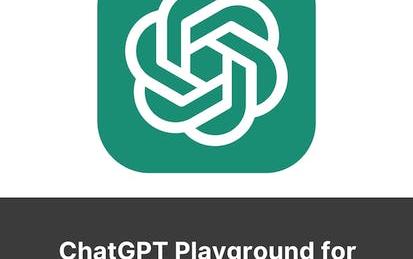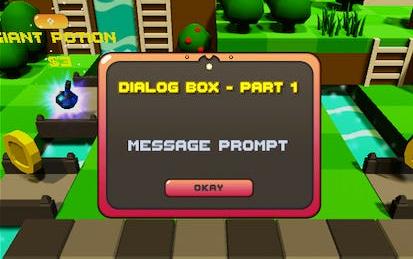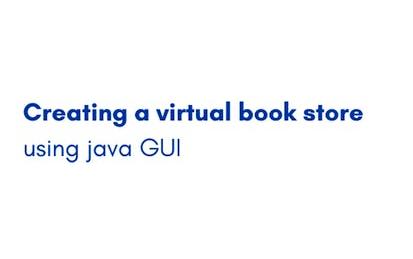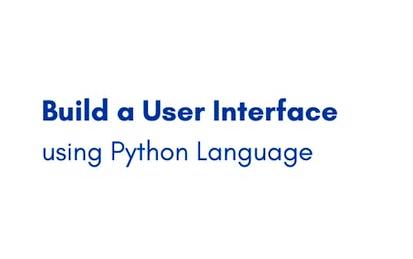

Our Courses

Rapid Prototyping of Embedded Interface Designs
This course can also be taken for academic credit as ECEA 5347, part of CU Boulder’s Master of Science in Electrical Engineering degree. Rapid Prototyping is the second of three classes in the Embedded Interface Design (EID) specialization, an online version of the on-campus EID class taught in graduate embedded systems design. This course is focused on rapid prototyping of devices and systems and the related methods, practices, and principles that will help ensure your embedded interface designs are what your users both need and want.
-
Course by

-
 Self Paced
Self Paced
-
 10 hours
10 hours
-
 English
English

ASP.NET Core Foundation
The ASP.NET Foundation course is an introductory-level course that aims to provide learners with a fundamental understanding of the ASP.NET framework and its components. The course is designed to help learners build a strong foundation in web development using ASP.NET and learn the basics of building web applications. The course also covers topics such as routing, validation, and authentication, which are essential for building secure and scalable web applications.
-
Course by

-
 Self Paced
Self Paced
-
 17 hours
17 hours
-
 English
English

Juniper Networks Security Concepts and Initial Configuration
In this course, you will be introduced to Juniper’s basic network security design concepts. You will learn about the Junos operating system (Junos OS) along with SRX Series security devices. You will learn the basics of the Junos CLI and J-Web user interfaces including initial configuration tasks and basic interface configuration. The course will explain the concepts of security zone objects, screen objects, address objects, service objects and how they are configured.
-
Course by

-
 Self Paced
Self Paced
-
 9 hours
9 hours
-
 English
English

Building Interactive User Interfaces Using React Library
A frontend application is expected to have an attractive, responsive UI and a seamless UX with swift navigable views. Single Page Applications (SPAs) fulfill these expectations as they are lighter and efficient. React, a popular JavaScript library is used for developing complex user interfaces for single page applications (SPAs). Facebook, Instagram, Netflix, Airbnb etc., are some of the famous websites that use React. In this course, you will learn to construct an SPA by developing reusable and testable React Class components.
-
Course by

-
 Self Paced
Self Paced
-
 19 hours
19 hours
-
 English
English

Tools of the Trade: Linux and SQL
This is the fourth course in the Google Cybersecurity Certificate. These courses will equip you with the skills you need to apply for an entry-level cybersecurity job. You’ll build on your understanding of the topics that were introduced in the third Google Cybersecurity Certificate course. In this course, you will explore computing skills that you’ll use on-the-job as a cybersecurity analyst. First, you'll practice using Linux, an operating system commonly used by cybersecurity professionals.
-
Course by

-
 Self Paced
Self Paced
-
 27 hours
27 hours
-
 English
English

ChatGPT Playground for Beginners: Intro to NLP AI
Welcome to the 'ChatGPT Playground for Beginners: Introduction to the world of AI' guided project! In this project, you'll create an AI-powered Health Assistant using the ChatGPT Playground Graphical User Interface, simulating a conversation between a family doctor and a patient. By delving into the tool's key parameters, you'll learn how to effectively guide AI text generation and ensure your AI assistant provides contextually appropriate medical advice.
-
Course by

-
 Self Paced
Self Paced
-
 2 hours
2 hours
-
 English
English

HTML Tutorial
Go from ZERO programming knowledge to creating your first functional website with the W3Schools HTML tutorial! As one of the most essential web developer skills, knowing HTML gives you the ability to create and design stunning, functional websites from scratch.
-
Course by

-
 Self Paced
Self Paced
-
 3 hours
3 hours
-
 English
English

Build a Python GUI with Tkinter
A graphical user interface can be a nice alternative to using the command line for running programs, as there is no need to memorize how to execute a command with arguments.
-
Course by

-
 Self Paced
Self Paced
-
 3 hours
3 hours
-
 English
English

Files and directories in the Linux filesystem
In this project, you will use Linux commands to traverse Linux directories and list files. You will also learn where certain files are stored, how to change permissions to allow access, and how to decide where files should reside. Linux is a popular operating system that is based on the Unix operating system. It has many distributions which have different interfaces for installing software, different user interfaces, and so on. Each distribution has a similar filesystem with directories used to house and organize files.
-
Course by

-
 Self Paced
Self Paced
-
 2 hours
2 hours
-
 English
English

Basic User Interface Design for Web Developers
By the end of this project, you will be able to describe and demonstrate some basic user interface design principles and techniques used by web developers.
-
Course by

-
 Self Paced
Self Paced
-
 2 hours
2 hours
-
 English
English

Create a User Interface in Unity Part 2 - World-Space Canvas
In this one-hour, project-based course, you will be introduced to Unity's User Interface (UI) Toolkit for creating user interface for your game world.
-
Course by

-
 Self Paced
Self Paced
-
 2 hours
2 hours
-
 English
English

Create a Dialog Box with C# in Unity Part 1 - Message Prompt
In this one-hour, project-based course, you'll learn how to use Unity's User Interface (UI) Toolkit for creating a simple, pop-up dialog box for your game.
-
Course by

-
 Self Paced
Self Paced
-
 3 hours
3 hours
-
 English
English

Check Point Jump Start: Maestro Hyperscale Network Security
In this course brought to you by industry leader Check Point, they will cover the Maestro Orchestrator initial installation, creation and configuration of security group via the web user interface and SmartConsole features. This course provides a demonstration of the Maestro product. Course will prepare you for their exam, #156-412, at PearsonVUE.
-
Course by

-
 Self Paced
Self Paced
-
 4 hours
4 hours
-
 English
English

BIM Fundamentals for Engineers
In this course, we will explore the foundational principles of Building Information Modeling (BIM) and its practical applications, starting with the evolution of engineering from traditional 2D drawings to the shift towards object-based modeling, which forms the core of BIM. This understanding sets the stage for examining real-world implementations across diverse sectors including airports, residential and commercial buildings, water treatment plants, substations, transportation, and material handling facilities.
-
Course by

-
 Self Paced
Self Paced
-
 13 hours
13 hours
-
 English
English

Creating a virtual book store using java GUI
In this 1-hour long project-based course, By the end of this project, you will create a graphical user interface application of a virtual bookstore using java as a programming language.
-
Course by

-
 Self Paced
Self Paced
-
 3 hours
3 hours
-
 English
English

Functional Programming in Scala Capstone
In the final capstone project you will apply the skills you learned by building a large data-intensive application using real-world data. You will implement a complete application processing several gigabytes of data.
-
Course by

-
 Self Paced
Self Paced
-
 32 hours
32 hours
-
 English
English

Build a User Interface using Python Language
In this 1-hour long project-based course, you will learn how to (learning objective 1, learning objective 2, learning objective 3).
-
Course by

-
 Self Paced
Self Paced
-
 3 hours
3 hours
-
 English
English

Building User Interfaces Using Functional React Components
React Components are generally implemented using Classes. Although they work well, they have their own set of limitations. The stateful logic provided by the class components lack reusability. To enhance the productivity, codes developers are expected to develop codes with reusability. This course will enable you to develop simple, readable, React components with reusable stateful logic using JavaScript functions and React Hooks. You will also explore the different React Hooks and test the stateful logic.
-
Course by

-
 Self Paced
Self Paced
-
 6 hours
6 hours
-
 English
English

UI / UX Design
The UI/UX Design Specialization brings a design-centric approach to user interface and user experience design, and offers practical, skill-based instruction centered around a visual communications perspective, rather than on one focused on marketing or programming alone. In this sequence of four courses, you will summarize and demonstrate all stages of the UI/UX development process, from user research to defining a project’s strategy, scope, and information architecture, to developing sitemaps and wireframes.
-
Course by

-
 Self Paced
Self Paced
-
 English
English

Build ATM User Interface using Routing in Angular
In this beginner level project, you will implement and build ATM user interface using routing, understand Parent and Child Routing and understand WildCard Routes in Angular which will be helpful in applying routing and navigating pages in modern web layouts. The pre-requisite for this guided project is have background in HTML,CSS, JavaScript/TypeScript and basics on building blocks of Angular Applications.
-
Course by

-
 Self Paced
Self Paced
-
 3 hours
3 hours
-
 English
English

MATLAB Programming for Engineers and Scientists
This Specialization is designed for learners with little to no programming experience and teaches them to create MATLAB programs that solve real-world engineering and scientific problems. While the focus is on general computer programming principles, the courses also provide in-depth coverage of MATLAB's unique features for engineering and scientific computing. The first course covers basic programming concepts. The second course teaches techniques for using ChatGPT to program more productively.
-
Course by

-
 Self Paced
Self Paced
-
 English
English

Meta React Native
If you want to learn how to create apps for Android and iOS devices, this course is right for you. This program is taught by industry-recognized experts at Meta. Cross-platform mobile developers build and write code for apps that are hosted on mobile devices powered by multiple operating systems. They do everything from creating the app to debugging it after deployment.
-
Course by

-
 Self Paced
Self Paced
-
 English
English

Embedded Interface Design
The objective of this specialization is to provide an understanding of interface design approaches and architectures for creating solid user experiences in embedded system prototypes and products. For both machine and user interfaces, we will look at the best practices for the interface design process, including considerations of the nature and content of interaction, whether between devices, between a device and a user, or in more complex systems.
-
Course by

-
 Self Paced
Self Paced
-
 English
English

Introduction to the Juniper Contrail Networking Solution
This course will introduce you to Juniper Networks Contrail Networking (CN2) , a cloud-native SDN solution for intelligent networking and security for Telco and IT cloud. You will learn about the concepts of a virtual network, underlays and overlays, as well as tunneling protocols such as VXLAN. The course will explore Network Functions Virtualization (NFV) and software-defined networking (SDN) approaches. You will learn about cloud-native Contrail Networking architecture and integration with orchestrations systems such as Kubernetes.
-
Course by

-
 Self Paced
Self Paced
-
 4 hours
4 hours
-
 English
English

iOS Project: Transreality Game
Students will produce a networked game that will leverage sensors on the phone to create a unique gaming experience. The focus of the game will be to make it physical through real-world gestures, motion and knowledge of other players real-world location. To do this students will need to integrate knowledge of graphics, networking, sensors, and user interface design alongside a skill set of tool usage. The final project will involve milestones with opportunities to get ungraded peer review feedback from fellow learners so that they can iterate and improve their game program.
-
Course by

-
 Self Paced
Self Paced
-
 10 hours
10 hours
-
 English
English



